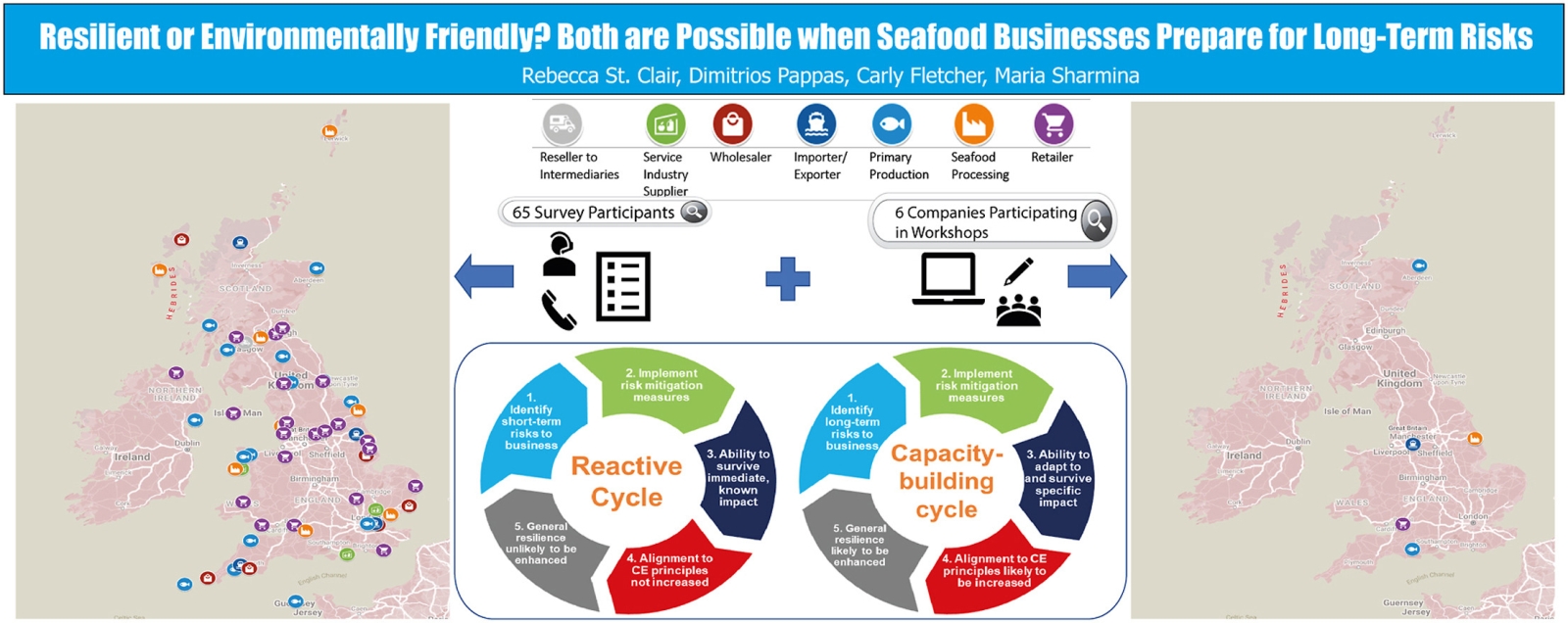Jul 2023 | JOURNAL OF CLEANER PRODUCTION |
The University of Leeds and other institutions in the UK conducted a study to explore the relationship between circular economy principles, risk mitigation, and resilience in seafood businesses. Sustainable seafood production is crucial for future generations, and it requires businesses to be resilient in the face of future challenges. The study aimed to investigate how aligning with circular economy principles, such as reducing waste and regenerating natural environments, can enhance general resilience.
Through surveys and workshops with seafood companies in the United Kingdom, the researchers found that many businesses were actively implementing circular economy actions, such as recycling materials and minimizing single-use plastics. However, when it came to identifying specific risks, companies tended to focus on short-term mitigation measures rather than longer-term strategies aligned with circular economy principles.
While businesses expressed confidence in their ability to adapt and survive future risks, the study revealed that a short-term focus on risk mitigation might hinder their capacity to plan for longer-term risks. This inability to anticipate and prepare for long-term risks could impede businesses' ability to enhance their resilience to unforeseen disruptions, trapping them in a reactive cycle rather than building proactive capacities for risk mitigation.
Graphical abstract






